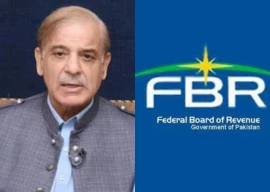
This system of increasing power to the elected representatives continued until it was reversed by the Basic Democracies model of Ayub Khan in 1959. Under Basic Democracies, the percentage of official members steadily increased at the higher levels, so that by the Divisional Councils the officials were about 50 per cent of the membership. Obviously, this mechanism ensured that there was no political opposition forthcoming for the now ‘elected’ president, but it also circumscribed the real role of local self-government, where it steadily came under the control of the bureaucrats.
Former president Pervez Musharraf’s local government system was a clear move to change the political focus to the localities and away from the centre, and its party-less initiation was supposed to temper organised opposition against him. However, the local government system devised by Musharraf significantly allowed for maximum local autonomy — almost all the main functions of local government came under the elected leadership and the bureaucrats were relegated to a supporting capacity. While this system confused the work of members of parliament in their constituency, and did not clearly delineate the roles of the elected representatives and the bureaucrats, it was a move in the right direction and only needed certain amendments.
The recent decisions of the Sindh government, in agreement with the president, to repeal the Sindh Local Government Ordinance of 2001 and the Police Ordinance of 2002, and resurrect the 1979 Sindh Local Government Ordinance and the Police Act 1861, are certainly retrograde steps. In one broad sweep, an elected government has set aside a century of progress (barring, of course, the dictatorship periods) and again disempowered governance at the local level. Such measures would be unthinkable under the British Raj, let alone in an independent democratic setup. Both the federal and the provincial governments have yet to make any clear arguments in favour of such a change. Official statements only claim that the legislation was repealed because it was passed under a dictator. Without focusing on the hypocrisy of such an arbitrary choice (as certainly there are other reasons why these ordinances, and not others, are being repealed), it is clear that the 1979 local government ordinance was also promulgated by a dictator and with the aim of re-centring the government on the bureaucracy. Similarly, rather than improving upon the modernising aspects of the Police Order of 2002, the government has decided on the wholesale reimposition of a 150-year-old act, which was devised to control the populace, rather than to help it, in the aftermath of the 1857 revolt.
In a country like Pakistan, it should be self-evident that such a weakening of local democratic institutions would only harm self-governance in the future; local government is the basic building block for democracy and without its proper functioning, no parliamentary democracy can succeed. Also, by reimposing the ‘fear’ model for the police, the government is preventing the modernisation and sophistication of the police force and inhibiting it from becoming a service for the people.
It is a real shame that a ‘democratic’ government is spearheading such initiatives.
Published in The Express Tribune, July 12th, 2011.
COMMENTS (22)
Comments are moderated and generally will be posted if they are on-topic and not abusive.
For more information, please see our Comments FAQ































1714129906-0/Clint-Eastwood-(1)1714129906-0-270x192.webp)



The system is not good or bad, ppl are, a system would be as good as the people incharged to serve the ppl. With the local govt system ppl felt empowered. Paticulalry in case of Urban cities of karachi where there is a major disconnect b/w the provincial govt. and ppl of the cities, local govt work better.
What is needed right now, is a movement to stop this crap.
It is up to the educated few to go out and inform the masses of the stupidity of this government. I shudder at the thought of it getting reelected in the 2013 elections.
Very well written
It is not rational to say this is being done because it was implemented by a military government. In the US, after the civil war, military rule implemented local government in the South. It wasn't removed after the termination of military rule. In Brazil, Jaime Lerner was appointed by military government to be mayor of Curitiba. He wasn't cast out after return of civilian rule. In Turkey, the largest cities have decentralized governance. It was implemented in the 1980s. It hasn't been discarded by governments that followed. By the action, Pakistan appears to be run by representative who are not modern, irrespective of the fact that they may have second homes in developed countries. In India. civic groups would have loved to have a system like Karachi. Do check out the voteMumbai plan on the internet. In india, leading executives also support a decentralized system in urban areas. Leading IT sector officials supported the voteMumbai plan.
I consider what the government did to be an “own goal.” I say this because they do not understand that the type of structure system had is critical for preventing urban anarchy and slum development due to excessive migration from rural areas. Both Pakistan and India are on the road to a major farm crisis through excessive use of tube wells. This subject was discussed in an international conference that took place in 2004 in Stockholm and was covered by a New Scientist article.
Please see: http://www.newscientist.com/article/dn6321-asian-farmers-sucking-the-continent-dry.html Asian farmers sucking the continent dry
In India, where the situation is more extreme, there is greater urban migration due to increasing rural failure. Meanwhile, those colonial era Indian cities are already treating rural migrants like Americans are treating illegal immigrant from Latin America!
Please see: http://www.csmonitor.com/World/Asia-South-Central/2010/1009/In-India-even-Indians-can-be-foreigners In India, even Indians can be 'foreigners' Things are due to get uglier as rural failure continues apace. Only Chinese cities are preprogrammed for massive migration, as they have already demonstrated; but not any of the cities in South Asia! It is a tragedy in the making.
This type of system was used by the Chinese to grow the economy. It can be a powerful economic mechanism. It is found in practically every continent. This system needed to evolve and see the implementation of regional bodies. This is how the system should have evolved, if the political parties understood what they were beneficiaries of. When you don't have regions, like the British still do, there is lop sided development. In England's case there is a prosperous London linked southern part and a depressed northern rust belt section. The commissionerate system will only reinforce the imbalanced development in these provinces. [The state of Sindh's cities and those of other provinces outside the one major city are appalling, let alone the uneven development in the provincial leader citiess. They all needed a system like Karachi and because of resistance in the 2d Musharraf Govt from the politicians, this never came to pass.] I find it ironic that President Zardari has a chateau in France, the country which is the fount and continued major venue of integrated governance of which this system was reflection-while he denies the same to the country he governs.
What, Dr Bangash, do you think are the real motives of such a move on the part of the Sindh government? For, as you have explained, it is a retrograde step, and, dismissing the government's argument of dictatorial imposition, they would need to have a decent reason to re-establish it. After all, the PPP doesn't need to 'gerrymander', having an absolute majority in the Sindh assembly, and it appears they are rather diminishing the political opportunities are more local levels, limiting their own authority. Bearing this in mind it is hard to see the reasons for which such measures are being taken.
Bureaucracy has once again struck the baiscs of Pakistani society. they always strive for empowering their group but not masses, who are real masters of Pakistan. there are concerned about having huge bunglows and luxury cars. they need to be harnessed otherwise we shall get into a political guagemire and fabrics of society shall be shaken.
very well argued and analysed we are certainly moving backwards.
What contradiction...the party which celebrates "Provincial Autonomy Day" is taking back the autonomy from the grass root level...Long Live Democracy Pakistan Style...Khappay Khappay!!
@ amir nasiruddin
no offence dude...but grow out of thatta and look at the bigger picture
Humble disagreement Bangash local autonomy/empowermnet ... YES. but the question here is about the effectiveness and efficiency of the two systems. considering nazim system .. in our society specially karachi and interior sindh .. the .would be .. nazims, mpa, mnas do not come from the strata they are meant to come from. therefore empowering them does not empower the common man. moreover I find it hard to agree when i see the performance graph of this nazim system. (Mustafa Kamal is an exception). On the otherhand Commissionar system is.. neutral... discplined.. skillfull. and not infected with politics. all it needs is the implementation with full force. And Old does not mean .. it is not relavant. Neuton's laws are old too. Regards . keep up the good writing.
I am from Thatta Sindh, we dont want this local system we want commissionary system.
we love this old commissionary system.
Thanks Yaqoob, all the dirty politics is done in the name of democracy here. Applying an outdated and flawed system which has kept us behind for more than 60 years does not make sense.
Excellent write up. Mr. Yaqoob.
In a semi-tribal society where ethnic groups kill at will, giving policing and administrative powers to majority ethnicity with yeild Nazizm in 21 century! No to skewed local governments with state power for ethnic cleansing!
Yes, because in Pakistan there is no democracy instead feudal demagoguery!
on the basis of this argument that Local Body Govt. System was a Produce of a dictator is not a valid argument at all.. The system you are imPosing is obsolete and outdated and does not deliver anything for the masses!!
Very well said!!!
This country deserves this torture... u wanted this democracy, now take it... u sacrificed the real democracy, the real governance for this crap... u shouted go musharraf, now enjoy life without musharraf... stupids of my country, accept what u deserve!